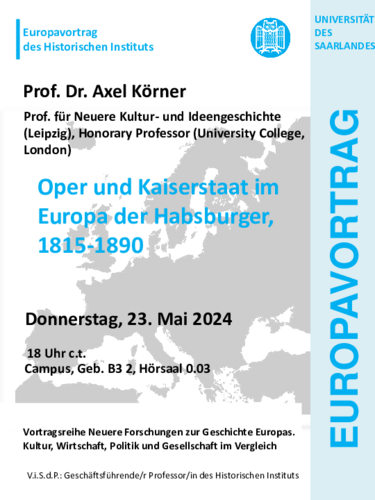Thursday, 23rd May 2024, 6pm c.t.
Campus, Geb. B3 2, Aula 0.03
In the Habsburg Monarchy, opera was an important means of exchange between nationalities, crown lands and religious communities, as well as between classes and genders, centre and periphery, and thus supported Austria's multinational idea of the state in the decades following the Congress of Vienna. The dissemination of the repertoire played a decisive role in this: in the original, in translations or in the form of parodies for the suburban theatres; but also the mobility of singers, entire opera companies and the associated impresarios. The cooperation between opera houses and theatre companies played a corresponding role, as did the circulation of commercial music through the sheet music trade.
Metternich - a proven connoisseur of opera - promoted Italian opera in particular in an attempt to create a new-found harmony between peoples during the years of the Holy Alliance. This view of opera in the Habsburg Monarchy challenges traditional representations that see opera in the 19th century primarily as an instrument of political nationalism. The lecture offers insights into an ERC-funded research project at Leipzig University in which historians and musicologists from all over Europe are working together: Opera and the Politics of Empire in Habsburg Europe, 1815-1914.
